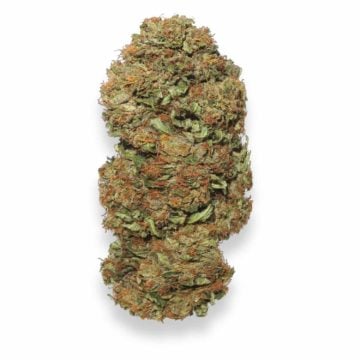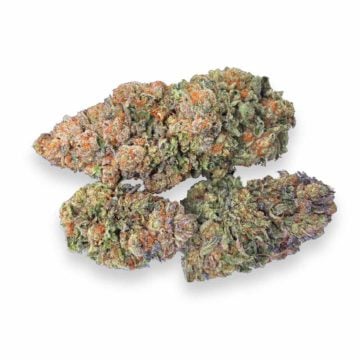
Delta-8 THC: A Potential Aid for Nausea and Appetite Enhancement
In recent years, the spotlight has turned to delta-8 tetrahydrocannabinol (THC) as a potential solution for managing nausea and enhancing appetite. This article takes an extensive dive into the role of delta-8 THC in addressing these health concerns, delving into scientific mechanisms and vital considerations.
This post is intended as information and for general knowledge only. It is not a substitute for medical advice, diagnosis, or treatment. It is recommended that you talk to a healthcare professional about this before introducing cannabinoids into your daily routine (especially if you have been diagnosed with any medical conditions or are under any medication). It is not recommended to drive or operate any machinery when using cannabis- or hemp-derived products. Use responsibly!
Understanding Delta-8 THC
Delta-8 THC possesses a similar molecular structure to its more renowned counterpart, delta-9 THC, yet stands out due to its milder psychoactive properties. The relation between these two compounds is intriguing, as delta-8 THC has shown promise in various areas, including nausea and appetite management. Derived from hemp or cannabis sources, delta-8 THC has emerged as an intriguing component of the cannabis plant. Its legal status varies across regions, adding complexity to its accessibility. However, as awareness grows, delta-8 THC products, like delta 8 gummies and other forms, have been finding their way into the market.
Nausea and Delta-8 THC
Nausea, a distressing sensation, can stem from physiological and psychological factors. Its adverse effects on overall well-being make it a prime target for potential remedies. This is where delta-8 THC’s possible benefits come into play. Emerging studies suggest that delta-8 THC may offer relief from nausea, primarily by interacting with the endocannabinoid system. By influencing cannabinoid receptors like CB1 and CB2, delta-8 THC could potentially alleviate nausea pathways and provide much-needed comfort. The interaction between delta-8 THC and CB1 receptors deserves attention. This cannabinoid receptor plays a pivotal role in regulating nausea and vomiting. Delta-8 THC’s influence on these receptors could signify a new avenue for managing these discomforts. In comparison to other cannabinoids such as CBD and delta-9 THC, delta-8 THC’s potential anti-nausea effects warrant exploration. CBD products, for instance, have gained traction for various wellness benefits, but delta-8 THC’s unique properties set it apart in the context of nausea management.
Appetite Stimulation and Delta-8 THC
A healthy appetite is integral to overall well-being. Lack of appetite can lead to nutritional deficiencies and a range of health issues. Addressing appetite concerns is crucial for maintaining optimal health. Research indicates that delta-8 THC might have a role to play in stimulating appetite. By influencing CB1 receptors, this compound could potentially boost hunger signals, making it a valuable asset for individuals experiencing appetite loss. In comparison to its counterpart, delta-8 THC might offer a more gentle approach to appetite stimulation. The psychoactive effects associated with delta-9 THC can be intense for some individuals, making delta-8 THC products a potential alternative for appetite enhancement. Delta-8 THC’s potential benefits extend to medical scenarios where appetite loss is a common challenge. For example, cancer patients undergoing treatments such as chemotherapy often experience a loss of appetite. Delta-8 THC’s ability to stimulate hunger signals could provide a ray of hope for these individuals.
Using Delta-8 THC Responsibly
While delta-8 THC products show promise, responsible usage remains paramount. Adhering to legal boundaries and informed decision-making ensures a positive experience while minimizing potential risks. Finding the right dosage and consumption method is crucial. Delta 8 products come in various forms, from delta 8 gummies to oils, each with its unique onset and duration. Consulting product labels and professional advice can guide users toward effective and safe usage. Engaging with healthcare professionals before integrating delta-8 THC into a wellness routine is crucial. Factors like pre-existing conditions, ongoing medications, and individual sensitivities must be considered to ensure a holistic approach to well-being.
User Experiences and Testimonials

Anecdotal reports from users who have explored delta-8 THC for nausea and appetite-related issues offer valuable insights. These personal experiences shed light on the potential benefits and individual differences in response. A range of perspectives underscores the diverse outcomes associated with delta-8 THC usage. Some users report positive effects on nausea and appetite, while others might have unique experiences that offer valuable lessons.
Potential Risks and Considerations
Like any compound, delta-8 THC is not without potential side effects. Dizziness and drowsiness are common, and users should be aware of these possibilities when using delta 8 products. Delta-8 THC’s psychoactive effects, though milder than delta-9 THC, can still impact daily functioning. Users must understand the potential psychotropic effects and make informed decisions accordingly. Individuals with pre-existing medical conditions or sensitivities should exercise caution when using delta-8 THC products. Interactions with existing treatments and unique considerations must be carefully evaluated.
Conclusion
Delta-8 THC’s potential benefits for managing nausea and enhancing appetite offer a hopeful solution in the realm of alternative remedies. However, users must approach this cannabinoid with careful consideration. Consultation with medical professionals and responsible usage are pivotal in harnessing its potential benefits while minimizing associated risks. In a landscape where holistic wellness is gaining traction, delta-8 THC products stand out as potential aids for managing nausea and enhancing appetite. As scientific research continues to shed light on this compound’s effects, individuals seeking relief can look toward informed decision-making, responsible usage, and medical guidance to unlock its potential benefits.
Also Interesting:
Pick a High: Delta 8 vs Delta 9
Pick a Strain: Understanding Cannabis Strain Types
Sativa vs Indica vs Hybrid Strains: A Comprehensive Comparison















